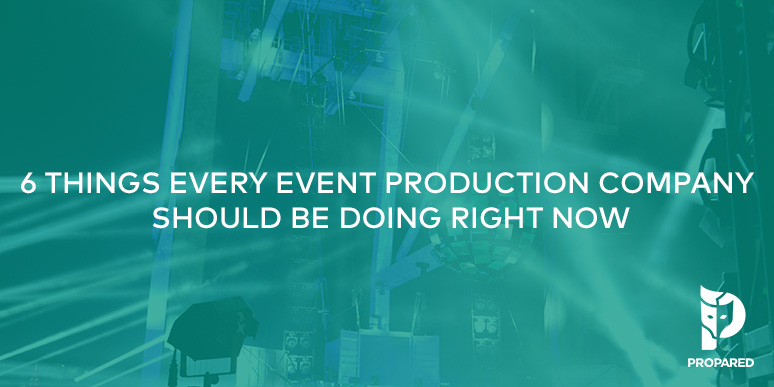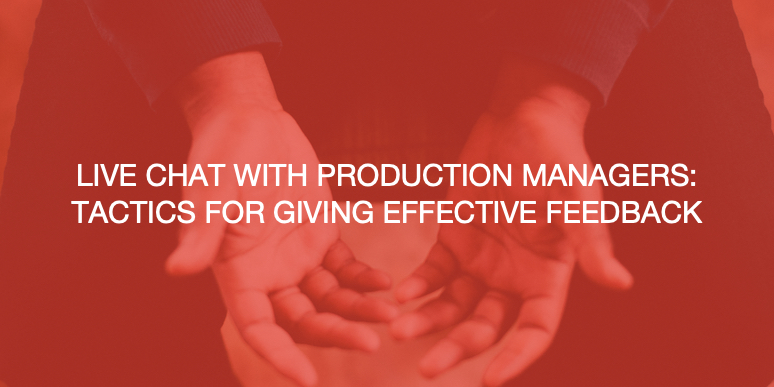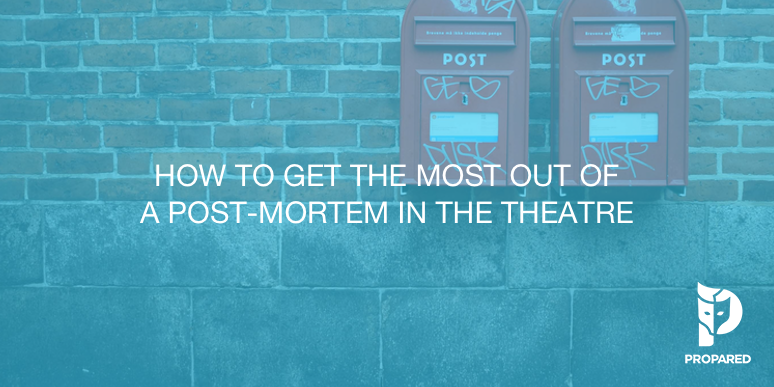
There’s a well-known quote attributed to the writer, Hunter S. Thompson that reads: “Anything worth doing is worth doing right.” (Technically, it’s a bit of a paraphrase of a much older quote from Philip Stanhope, 4th Earl of Chesterfield but why quibble?) For production managers, this usually means more work (time!) and more money when executing an event.
In today’s competitive marketplace, those are scary propositions. Especially for smaller companies struggling to carve out a niche. As the stress of making ends meet grows, the idea of cutting corners becomes more attractive. Even if you know it isn’t the right choice.
When my partner and I started our company (Tinc Productions), we had certain requirements for doing business. Through years of freelancing, we observed way of working that we either A. wanted to emulate, or B. wanted to do differently. And then there were things we just had to learn the hard way. This combination of core beliefs and fall-on-our-face learning have made us better production partners and event managers. Here are six of the principles by which we run our business. Hopefully, they can help you, too!
1. Get a contract for every show you do
Event work is people work. And it’s fun! You spend so much time face-to-face, working on interesting, creative projects, one can almost forget that it is a business. And businesses need contracts. As tempting and easy as it is to work on a handshake, don’t commit your team’s resources to full production without an agreement in writing.
Contracts aren’t just court-worthy documents. They help establish the relationship between parties. They define roles and expectations. And they provide a point of reference should questions arise about responsibilities. When I teach management classes, I encourage companies, and independent contractors alike to sign contracts for each new job. They don’t have to be fancy. They just have to be documented. Even an email exchange between parties in which the details have been agreed upon can constitute a contract.
2. Pay your staff correctly
I don’t mean the right amount. I mean like an employee. For anyone who has had to pay someone before, you know exactly what I mean when I utter words like 1099, Independent contractor, W4, etc. It is vitally important that you classify people correctly when paying them. Don’t just do it for your own protection. Do it for the health and safety of your hires on-site. Technically, any time you dictate the times someone has to report to work, anytime you give him or her specific directions while on-site, he or she should be classified as an employee.
3. Do internships right
Interns are the new entry-level job. I guess not so new anymore. Internships have long been a pathway to jumpstarting a career. But take note, business owners: intern does not equal free/cheap labor. I see WAY too many situations where internships are handled this way. I’m sure you have, too. Pay them. They are doing work for your company and helping it to grow. The internship program itself is your recognition that young professional need opportunities for on-the-job training. Especially in event production. They need to make contacts, just like you needed to make contacts when you were starting out. Pay it forward. Literally. Pay.
And one other thing, on the line that internships straddle between work and educational/professional development. Interns may be doing important work for you. But not in place of an employee. In fact, if you had no intern, you should still be able to perform all tasks as necessary. If you can’t, hire someone. If you don’t have time to do all your job requires, how can you have time to properly mentor an intern? Okay, soapbox is put away now.
4. Safety First
Accidents can happen anywhere on-site. And you can’t be in all places. It is your team’s commitment to creating a culture of safety at an event that will be your best defense. Translation? Never use words like, “I don’t care how it gets done, just do it.” We all want to show up, work hard, and get home safely. So make sure everyone feels comfortable raising concerns. Say it loud and say it often: safety is a collective responsibility.
5. Educate your clients
Trust is the single most important trait to landing new clients. And retaining your current ones. The best way to build this trust? Teach them. Give them a better understanding of how and why you do the amazing things you do. Lead with it. Even if you don’t land the job, you’ll create a substantial amount of goodwill. It is a near certainty that your potential clients will encounter a, let’s say, less-than-above-board production company in the future. Play the long game. I’ve had a lot of clients come back down the road after realizing how nice it was to have a partner who was on the level.
6. Don’t Guess
If you don’t know something, find someone who does. Managing a live event requires more skill and know-how than any one person can possibly have on his or her own.

That’s why we have department heads and specialists. That’s why we find partners and vendors and A/V pros. Use them when ticking through your event planning checklist. It’s not a sign of weakness to admit you don’t know the answer.
From contracts to interns, legal responsibilities to moral ones: these tenets have helped us define our identity and establish stability. And they’ve allowed us to focus on doing things the right way every time. I hope you find success with some of them. Or find your own! After all, “If a job’s worth doing, it’s worth doing well.” There, had to give The Earl of Chesterfield his moment.
Event managers – what decisions have you made that keep your company successful? Share your thoughts with us in the comments below!



